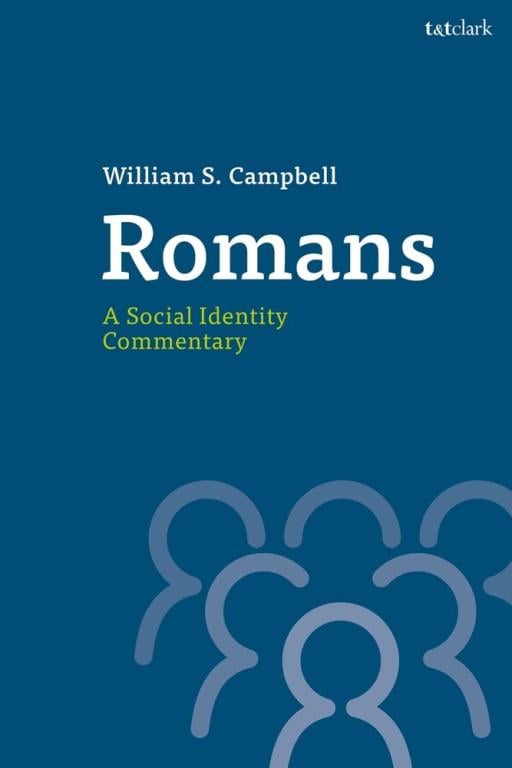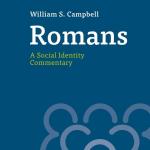Q. Your way of reading Romans is quite different especially from traditional Protestant readings. What was it that prompted you to take a ‘Paul Within Judaism ‘approach when it comes to Romans, or to put it another way, what led you to change your mind on the way you read Romans earlier in your career?
A. Firstly, I think I would not term ‘Paul Within Judaism’ an approach in the same way as .e.g. a Social Identity Approach. It is more a revision of the perspective and evaluation of the historical and theological context rather than an ‘approach’ employing certain defined methodologies etc. When the label “Paul With Judaism” appeared on the scene of scholarly research, it assembled under its umbrella a number of scholars who had argued over a significant period of time and from diverse angles that not only Paul himself but also his message should be seen as fully part of the range of Jewish traditions of the time. As a younger scholar, I had always insisted that Paul did not argue in an anti-Jewish way and that he should be read only in context. I had been coming from such a perspective throughout my career, so did not need to change, but only to extend the range of what I understand as Paul’s context. I see “Within Judaism” as something like a school of which a number of people share a significant number of aspects in varying degrees.1 Moreover, it is also rather recent in its emergence as a distinct focus of interpretation with its own label which is only now beginning to be clarified as e.g. in a forthcoming volume 2………in which I have a contribution on the meaning of reading Paul within Judaism for contemporary Protestantism, showing that such a reading is coherent with present Protestant thought.
Secondly, although I did not change my mind, I am aware that with writing about and teaching Paul’s letters, I did gradually develop my understanding over a period of years. I always followed Johannes Munck in his thesis that Paul wrote for gentiles yet only after 1990 did I consciously try to formulate what this meant3. But already I had argued in The Scottish Journal of Theology that Paul would not compel Jews to give up their Jewish identity in order to follow Christ. Rather, this was retained. I realized that it is one thing to presume that Paul’s communities were mainly gentile and another to assume that he writes exclusively to gentiles, as I have claimed here for Romans and what this means for the interpretation of his letters. I wrote my PhD thesis (1972) on Romans prior to the main work of both Krister Stendahl (1976) and E.P. Sanders (1977). My initial concern with Romans was to seek to demonstrate that it was not a doctrinal treatise but a contextually targeted letter to an exigency that Paul addressed. I have refined this contextual reading more precisely to view it as addressed only to gentiles, hence my commentary which seeks to draw out the implications of this reading. In and with this contextual emphasis I argued already in 1972, that there is no anti-Jewish bias in Romans, and that chs. 9-11 are not a secondary addition or a digression , but the climax of the argumentation in the letter. So, in that sense, I argued for reading ‘Paul within Judaism’ long before there was such a label.
Notes:
1 See Kathy Ehrensperger, “Paul, the Jewish Apostle to the Nations: Key Aspects of the Paul Within Judaism Perspective”, Early Christianity, Vol 14 (2023) 35-54. 2 Within Judaism? Jewish, Christian, and Muslim Perspectives from the First to the Twenty-First Century, eds. Karin Hedner Zetterholm and Anders Runesson,Lanham, MD: Lexington/Fortress Academic forthcoming 3 “Did Paul Advocate Separation from the Synagogue? Vol. 42 (1990) 457-67 and my chapter on “Religious Identity and Ethnic Origin in the Earliest Christian Communities” in my Paul’s Gospel in an Intercultural Context, Bern, New York et.al.: Peter Lang 1991, 98-121.
2 Within Judaism? Jewish, Christian, and Muslim Perspectives from the First to the Twenty-First Century, eds. Karin Hedner Zetterholm and Anders Runesson,Lanham, MD: Lexington/Fortress Academic forthcoming 3 “Did Paul Advocate Separation from the Synagogue? Vol. 42 (1990) 457-67 and my chapter on “Religious Identity and Ethnic Origin in the Earliest Christian Communities” in my Paul’s Gospel in an Intercultural Context, Bern, New York et.al.: Peter Lang 1991, 98-121.
3 “Did Paul Advocate Separation from the Synagogue? Vol. 42 (1990) 457-67 and my chapter on “Religious Identity and Ethnic Origin in the Earliest Christian Communities” in my Paul’s Gospel in an Intercultural Context, Bern, New York et.al.: Peter Lang 1991, 98-121.













